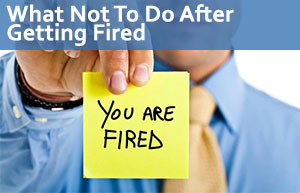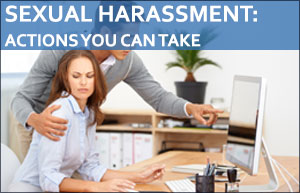Preguntas frecuentes sobre derecho laboral
What qualifies as a “toxic work environment” under employment law?
A toxic work environment is one where employees face harassment, discrimination, retaliation, or psychological abuse that negatively affects their ability to work. If an employer creates or allows such conditions, they may be violating labor laws.
Can I sue my employer for creating a toxic work environment?
Yes, if your employer fosters or ignores harassment, abuse, or discrimination, you may have grounds to file a lawsuit, especially if it violates state and federal workplace protection laws.
What evidence do I need to prove a toxic workplace claim?
Keep records of emails, texts, performance reviews, witness testimonies, HR complaints, and any incidents of mistreatment to strengthen your case.
What legally counts as sexual harassment at work?
Sexual harassment includes unwanted advances, inappropriate comments, requests for sexual favors, or any behavior that creates a hostile work environment based on sex.
Can I take legal action if my boss sexually harassed me but didn’t touch me?
Yes, sexual harassment is not limited to physical contact. Verbal harassment, inappropriate jokes, lewd messages, or suggestive comments can all qualify.
What should I do if HR ignores my sexual harassment complaint?
If HR fails to take action, document their lack of response and consult a toxic job lawyer to explore legal options, including filing a complaint with the Equal Employment Opportunity Commission (EEOC).
Can my employer fire me for rejecting a supervisor’s sexual advances?
No. Retaliation for rejecting sexual advances is illegal and could be grounds for a wrongful termination lawsuit.
Can I sue my employer for verbal abuse or emotional distress?
If the abuse is severe, persistent, and intended to harm you emotionally, you may have a case under workplace harassment laws.
What if my manager constantly yells, belittles, or threatens me?
Persistent verbal abuse, bullying, or threats may create a hostile work environment, which can be legally actionable.
Is workplace bullying illegal?
While bullying alone may not always be illegal, if it involves discrimination, retaliation, or harassment, it may violate employment laws.
What counts as wrongful termination?
Wrongful termination occurs when an employer fires you for illegal reasons, such as discrimination, retaliation, or refusing to engage in unlawful practices.
I was fired after reporting harassment—can I sue?
Yes. Retaliation for reporting harassment is illegal, and you may be able to seek damages for lost wages and emotional distress.
What should I do if I was forced to quit due to toxic conditions?
If workplace conditions were so unbearable that you had no choice but to resign, you might have a constructive dismissal case, which is treated similarly to wrongful termination.
How do I prove my employer retaliated against me?
Look for signs like sudden negative performance reviews, demotions, pay cuts, job reassignments, or termination shortly after reporting misconduct.
What legal protections do whistleblowers have?
Laws like the Whistleblower Protection Act and state employment laws protect employees who report illegal activities, fraud, or unsafe work conditions from retaliation.
Can I remain anonymous if I report workplace misconduct?
Yes, but some cases may require revealing your identity if legal action is taken. A lawyer can advise you on the safest approach.
What should I do if my employer retaliates against me for reporting illegal activities?
Document any retaliation and seek legal counsel immediately to explore filing a retaliation lawsuit or a complaint with the EEOC or labor board.
Can my employer fire me for getting pregnant?
No, terminating an employee due to pregnancy violates the Pregnancy Discrimination Act (PDA) and other labor protections.
What should I do if I am denied a promotion because of my race or gender?
Keep records of your qualifications, past reviews, and any patterns of discrimination within the company. You may have grounds for a discrimination claim.
Are LGBTQ+ employees protected from workplace discrimination?
Yes. Under federal and state laws, employees cannot be discriminated against based on sexual orientation or gender identity.


100% CONSULTA GRATUITA DE CASO

Nuestra garantia
NO pague HONORARIOS hasta que ganemos su caso de empleo.

Revisión del cliente
Grupo de Abogados de Empleo en Derecho Laboral de California
5 de 5
Éste puede ser un mundo feo y es agradable saber que abogados como Daniel ayudan a las personas a corregir un error cuando han sufrido a manos de su empleador. Daniel es uno de los buenos que existen y recomiendo encarecidamente sus habilidades como abogado laboral.
– Hoagland Stubbs